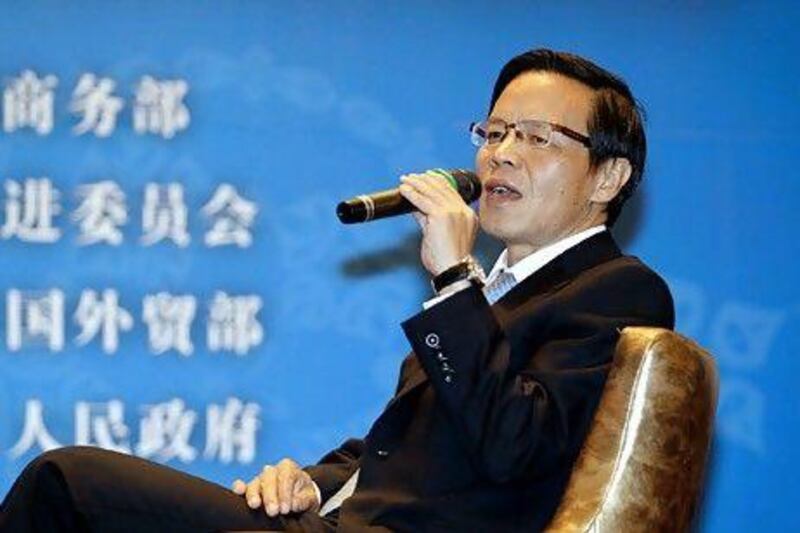YINCHUAN, CHINA // Chinese industrial giants that once chased contracts abroad are hunkering down at home to wait out the global downturn.
Reviving a strategy used after the 2008 financial crisis, state-owned behemoths hope growth at home, even if slower than before, will be better than what lies beyond China's borders.
"Let's take 2010 as a specific year," said Tong Laigou, the vice president of Sinoma, the world's biggest cement equipment and engineering company. "That year our company focused more of our attention on the Chinese market and we took more efforts to develop our own business in China since the overseas demand is slowing down. In the current situation the same thing happens."
Pushed by the debt crisis in the West, the approach to focus on local growth is made possible by a transformation wrought over the past two decades that has lifted China from the world's manufacturing base to a nation where consumer spending is increasingly important.
China's 10 per cent trade surplus in 2007 is projected to shrink to 1 per cent by 2016, according to the Economist Intelligence Unit, and over the past five years wages have grown by an average of 12 per cent.
China Energy Engineering Group, a state-owned power conglomerate, has had to leave behind discussions in the UAE for design and consulting projects as a consequence of the global downturn, according to Nie Kai, the vice president of the company and a vice chairman of the China International Contractors Association.
"One of the most prominent consequences of the financial crisis is the shortage of cash flow and the increase of the financing," he said. "So in this case, for most of the enterprises - it doesn't matter whether it is large or small or medium - they will be very cautious in this regard."
Chinese exports of building materials and other goods to the Middle East are likely to suffer with fewer construction contracts, said Ben Simpfendorfer, the managing director of Silk Road Associates, a consultancy specialising in China and the Middle East.
"What would strengthen ties would be if Chinese construction companies were willing to move up the value curve, not to concentrate just on cost," said Mr Simpfendorfer. "If the domestic economy slows, these companies tend to go offshore."
Both industry executives and government officials paint today's growth of about 7 per cent as an inevitable "structural adjustment" after years of double-digit expansion.
"Right now the growth rate is slowing down and I think it's impossible for us to still maintain the growth rate at 10 per cent or [more]," said Mr Tong. "But China is a very huge country with 1.3 billion people and our economic development still enjoys very good potential."
That development is to ride on infrastructure expansion in less developed regions of western China, especially as people move into cities and the government proceeds with welfare-style programmes to help the poor. Yinchuan, a city in north-west China where executives such as Mr Tong had travelled for an investment conference, bears marks of the modernisation drive with large toll motorways and rows of apartment buildings sheathed in green netting with cranes waiting nearby.
"In this country the development is not so balanced," said Mr Tong. "We'll have huge space for the building of the infrastructure … It cannot be finished in one year or two years. We still need five to 10 years, or more."
[ ayee@thenational.ae ]
twitter: Follow and share our breaking business news. Follow us
iPad users can read the digital edition of business section as it was printed via our e-reader app. Click here





